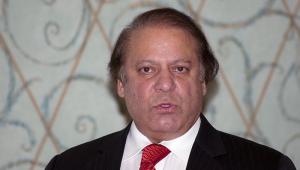By Richard Johnstone | 28 August 2013
The World Bank has pledged to help the government of Pakistan improve the country’s financial sustainability after senior officials met Prime Minister Nawaz Sharif.
In a visit to Islamabad, which ended on Saturday, the World Bank’s new vice president for the south Asia region, Philippe Le Houérou, said the country faced a ‘difficult’ economic situation.
Le Houérou, who was accompanied on the trip by the outgoing World Bank vice president for the region Isabel Guerrero, said the bank supported the government’s plan to stabilise the economy and implement structural reforms.
In a meeting with Sharif, Le Houérou discussed the government’s development priorities and the planned sequencing of the bank’s $1.5bn support for Pakistan over the next 10 months.
This is intended to improve the performance of the country’s public sector, including implementing reforms in the energy sector.
Following the meeting, Le Houérou highlighted that the country faced an energy ‘crisis’ due to generation limits. These have already been power cuts this year, and the World Bank said the government needed to focus on both immediate needs and long-term planning to boost energy production.
The need for energy investment far exceeds the financing available from the public sector and development agencies combined, Le Houérou warned. Therefore, governance changes will be needed to attract private and sovereign fund investment to get the country’s power infrastructure ‘out of crisis and provide stability in the long run’.
He added: ‘The World Bank Group stands ready to assist the government in reform implementation through policy and performance-based support.
‘The complex challenges facing the country call for not only implementation of multi-sectoral fundamental reforms and investments but also their careful sequencing.’












